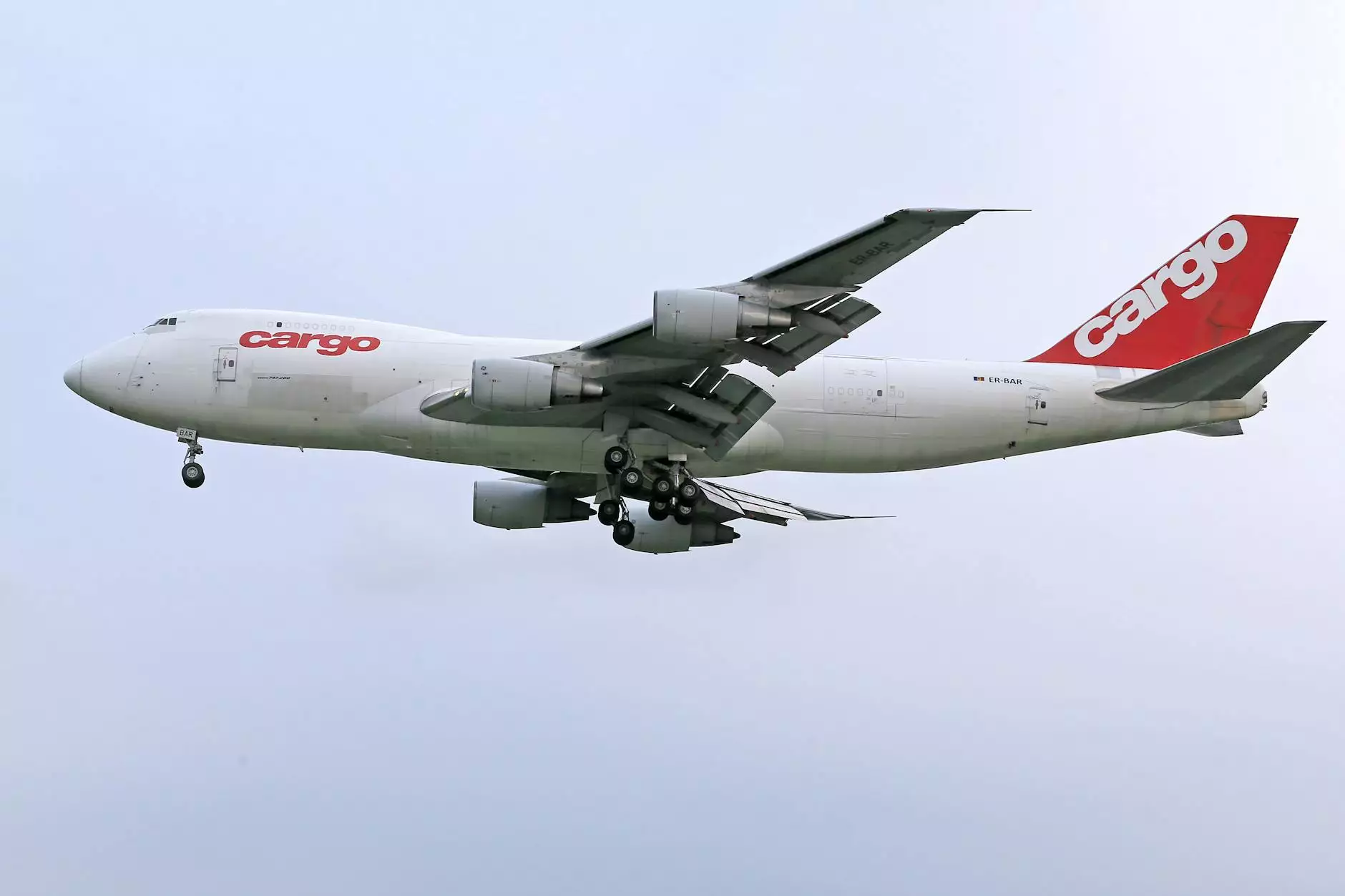Understanding Air Freight Cost Calculation: A Comprehensive Guide for Businesses

The world of air freight can seem daunting, especially when it comes to cost calculations. For businesses that depend on timely shipments, understanding the intricacies of air freight cost calculation is essential. This article aims to demystify the process, allowing companies to make informed decisions that enhance their operational efficiency and reduce expenses.
The Importance of Air Freight in Modern Business
In today's global market, where speed and efficiency are paramount, air freight offers a reliable solution for transporting goods across vast distances. With air transportation, businesses can:
- Reach international markets quickly.
- Ensure timely delivery of perishable and high-value goods.
- Improve customer satisfaction through rapid service.
How Air Freight Costs Are Calculated
Calculating air freight costs involves several factors that contribute to the final price. Understanding these elements can help businesses optimize their shipping strategies and budget effectively. The main components of air freight cost calculation include:
1. Weight and Volume
Air freight costs are typically calculated based on either the actual weight or the dimensional weight (also known as chargeable weight) of the shipment. The dimensional weight is determined by the volume of the cargo and reflects the space the shipment occupies in the aircraft.
2. Base Rates
A base rate is the fundamental cost associated with transporting goods on a specific route. This rate varies based on factors such as:
- The airline chosen for transport
- The distance between shipping points
- The demand for cargo space on that route
3. Fuel Surcharges
Fuel surcharges are an inescapable part of air freight calculations. Airlines typically include a fuel surcharge to account for fluctuating fuel prices. This charge can vary significantly, so staying updated on current rates is essential for accurate cost estimation.
4. Handling Fees
All shipments incur various handling fees. These may include charges for loading and unloading freight at airports, as well as fees for specialized services such as:
- Customs brokerage
- Special packaging
- Storage of goods in transit
5. Insurance
While optional, insurance is a crucial consideration in air freight cost calculation. It protects your cargo against potential loss, theft, or damage during transit. The cost of insurance is generally based on the value of the goods being shipped.
Calculating Air Freight Costs: A Step-by-Step Guide
To provide a better understanding of how to calculate air freight costs, let’s walk through a step-by-step guide:
Step 1: Determine the Weight and Volume
Weigh your shipment accurately and measure its dimensions. Use the following formula to calculate the dimensional weight:
Dimensional Weight = (Length × Width × Height) / 5000
Step 2: Identify the Applicable Base Rate
Consult your logistics provider or airline for the base rate for the specific route. This information is often available on their website or through customer service channels.
Step 3: Calculate Fuel and Handling Charges
Obtain the current fuel surcharge from your carrier and add any handling fees. Ensure that you account for all possible service charges that might apply to your shipment.
Step 4: Add Insurance (if applicable)
If you choose to insure your cargo, calculate the insurance cost based on the total value of your goods. Add this amount to your shipping total.
Analyzing & Optimizing Your Air Freight Costs
After calculating your air freight costs, it’s crucial to analyze this data to identify potential savings. Here are some strategies:
1. Consolidate Shipments
Shipping multiple items together can reduce costs significantly. Consolidation allows you to take advantage of bulk rates, and it can also streamline customs processes.
2. Evaluate Different Carriers
Don't settle for the first quote. Compare rates and services offered by multiple carriers to find the most cost-effective option. Each airline has different pricing structures, surcharges, and reliability records.
3. Negotiate Contracts
For businesses that ship large volumes regularly, establishing a contract with a carrier can yield significant discounts. Negotiate rates, service terms, and surcharges to secure the best deal.
4. Optimize Packaging
Reducing the dimensional weight of your packages through more efficient packaging can lead to lower costs. Use standard box sizes and appropriate packing materials to minimize space use without compromising the safety of your goods.
Common Mistakes in Air Freight Cost Calculation
Understanding the nuances of air freight cost calculation can prevent errors that lead to inflated charges. Here are some common pitfalls to avoid:
1. Ignoring Dimensional Weight Pricing
Many shippers mistakenly focus solely on actual weight, which can lead to unexpected charges. Always calculate both actual and dimensional weight to ensure you are aware of the chargeable weight.
2. Underestimating Handling Fees
Deliveries to different locations might incur varied handling fees. Failure to account for these can lead to unexpected expenses. Always inquire about all associated fees before shipping.
3. Not Using Insurance
Neglecting to insure valuable shipments can expose businesses to significant financial losses. Assess each shipment's value and consider insurance as a vital part of air freight planning.
Conclusion
Understanding air freight cost calculation is crucial for any business that relies on efficient shipping methods. By grasping the various factors that influence costs and implementing strategies for optimization, companies can enhance their logistics operations and achieve substantial savings.
As the air freight industry continues to evolve, staying informed and adapting to these changes will ensure that your business remains competitive in the global marketplace. For further assistance, consider consulting with experts in the field, such as those at Cargobooking Aero, who specialize in providing tailored air freight solutions to meet specific business needs.
Explore More with Cargobooking Aero
Whether you are looking to streamline your shipping processes or dive deeper into the logistics of air freight, Cargobooking Aero is your trusted partner. With our extensive network and industry knowledge, we are committed to helping your business navigate the complexities of air freight logistics.








